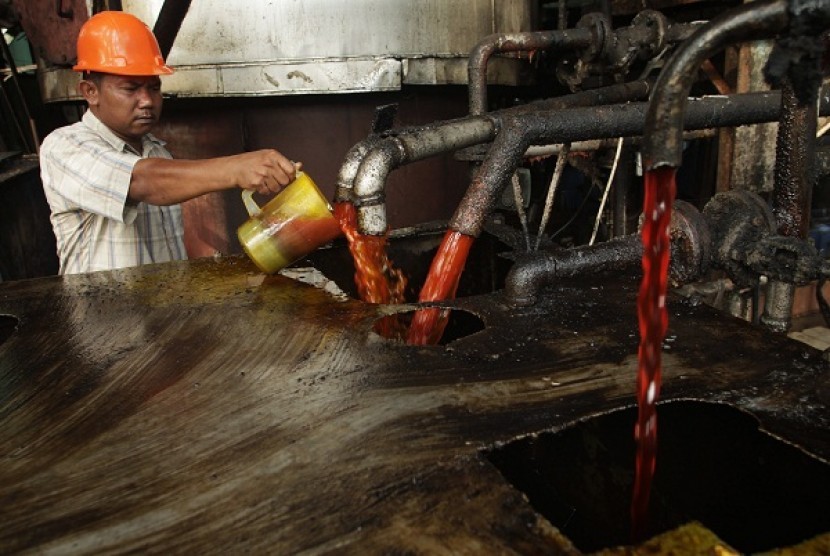REPUBLIKA.CO.ID, JAKARTA - Palm refining capacity in Indonesia is forecast to jump almost 50 percent this year, according to industry officials, a rise that would likely reduce crude palm oil (CPO) exports and provide a short-term boost to Malaysian benchmark prices.
The cut in exports would leave some Malaysian palm refiners short of feedstock, lifting prices as competition for CPO increases and trimming processing margins that are already relatively thin, analysts said. Refinery capacity in the world's top producer of palm oil is seen jumping to 45 million tonnes per annum by the end of 2014, up from 30.7 million tonnes last year and more than double the 21.3 million tonnes of 2012, according to Sahat Sinaga, executive director of the Indonesian Vegetable Oil Association.
"There would be more competition for CPO for sure and possibly less availability for Malaysian refiners and others to import it," said Chris de Lavigne, global vice president of industrial practices at Frost & Sullivan.
The greater capacity also outstrips Indonesia's own crude palm oil production - projected at 30 million tonnes this year - and the domestic industry's already low refinery utilization rates are likely to fall further. Indonesian palm refineries ran at 70-80 percent capacity last year, and this will likely fall further to 50-60 percent in 2014, said industry officials.
Smaller companies, though, may come under pressure to close processing plants as CPO prices rise and margins worsen.
"The old refineries or ones running inefficiently will surely close down ... independents without plantations will suffer," said an official at a major Indonesian palm firm who is not authorised to speak to the media.
As Indonesia has increased its palm refinery capacity over the last few years, the portion of its palm exports made up of CPO has dropped in half to about a third of total exports. Exports are forecast at about 21 million tonnes this year.
Malaysian palm oil futures, which closed at 2,652 ringgit (810 USD) per tonne on Friday, suffered their biggest monthly drop in over a year last month amid worries of lagging global demand from key consumers.
CPO prices in Indonesia are 2-6 percent higher than the Malaysian benchmark prices, according to traders and officials. Palm oil fruit are harvested and sent to mills to be crushed and boiled into CPO, which is then sent to refineries to be processed into an ingredient for food products such as biscuits and ice cream. CPO can also be used as a component of biofuels.


